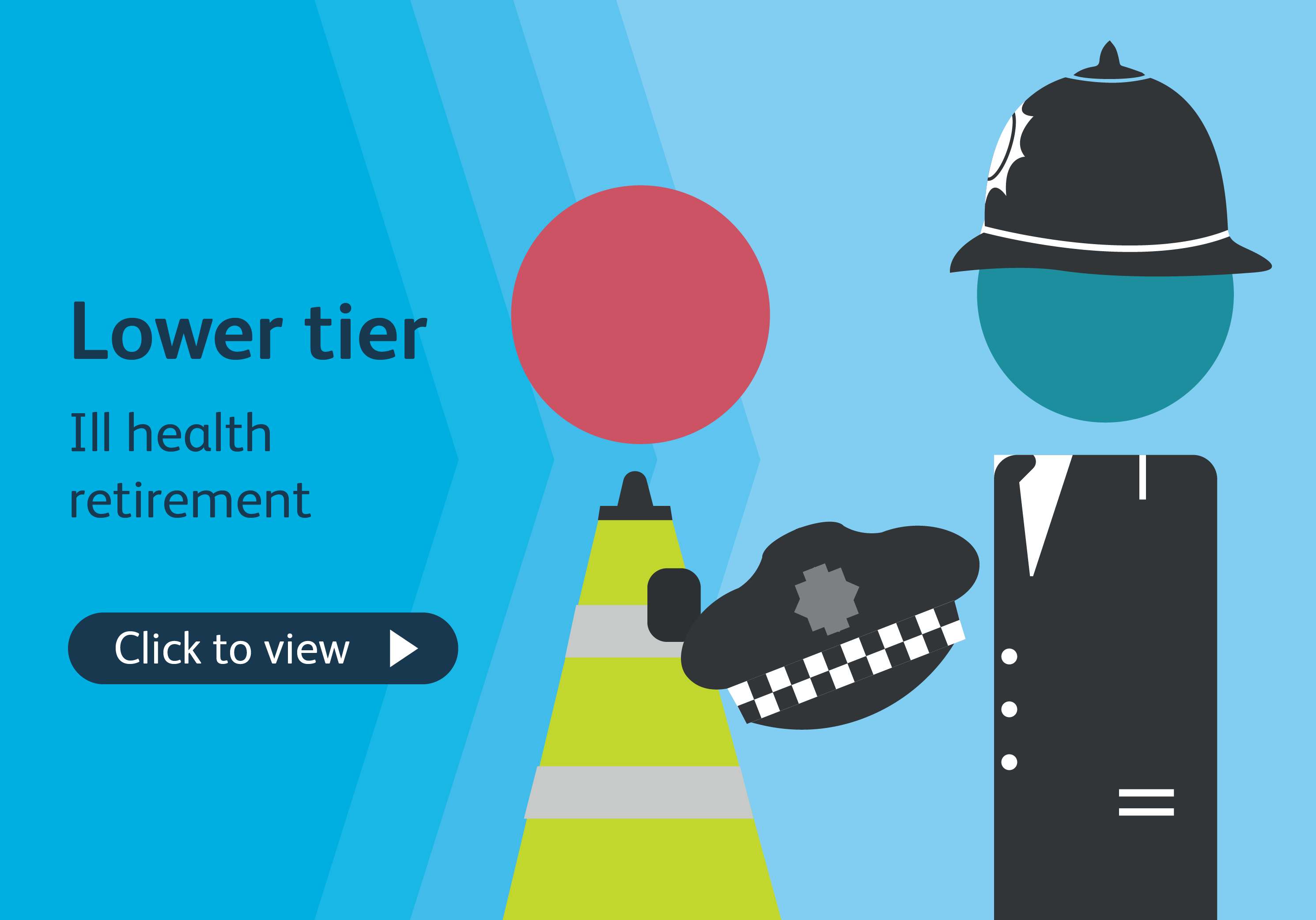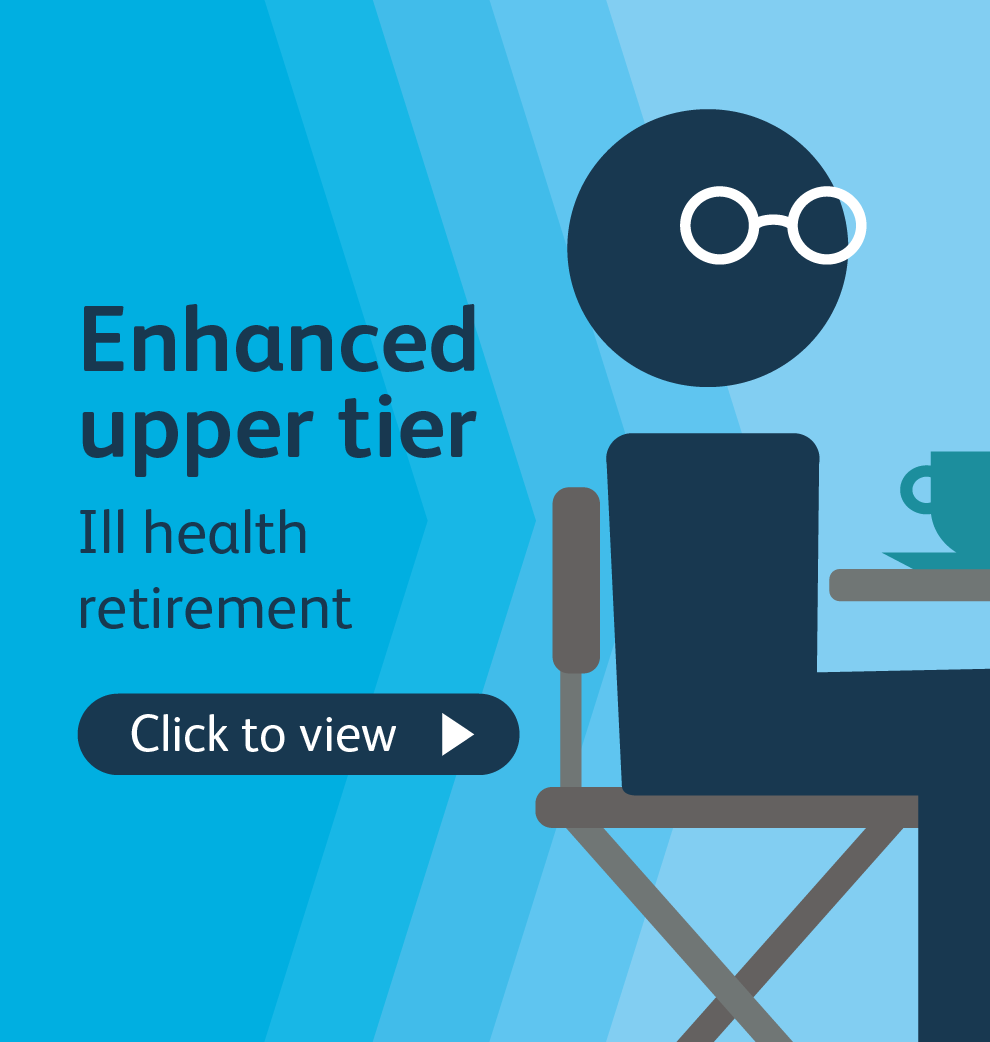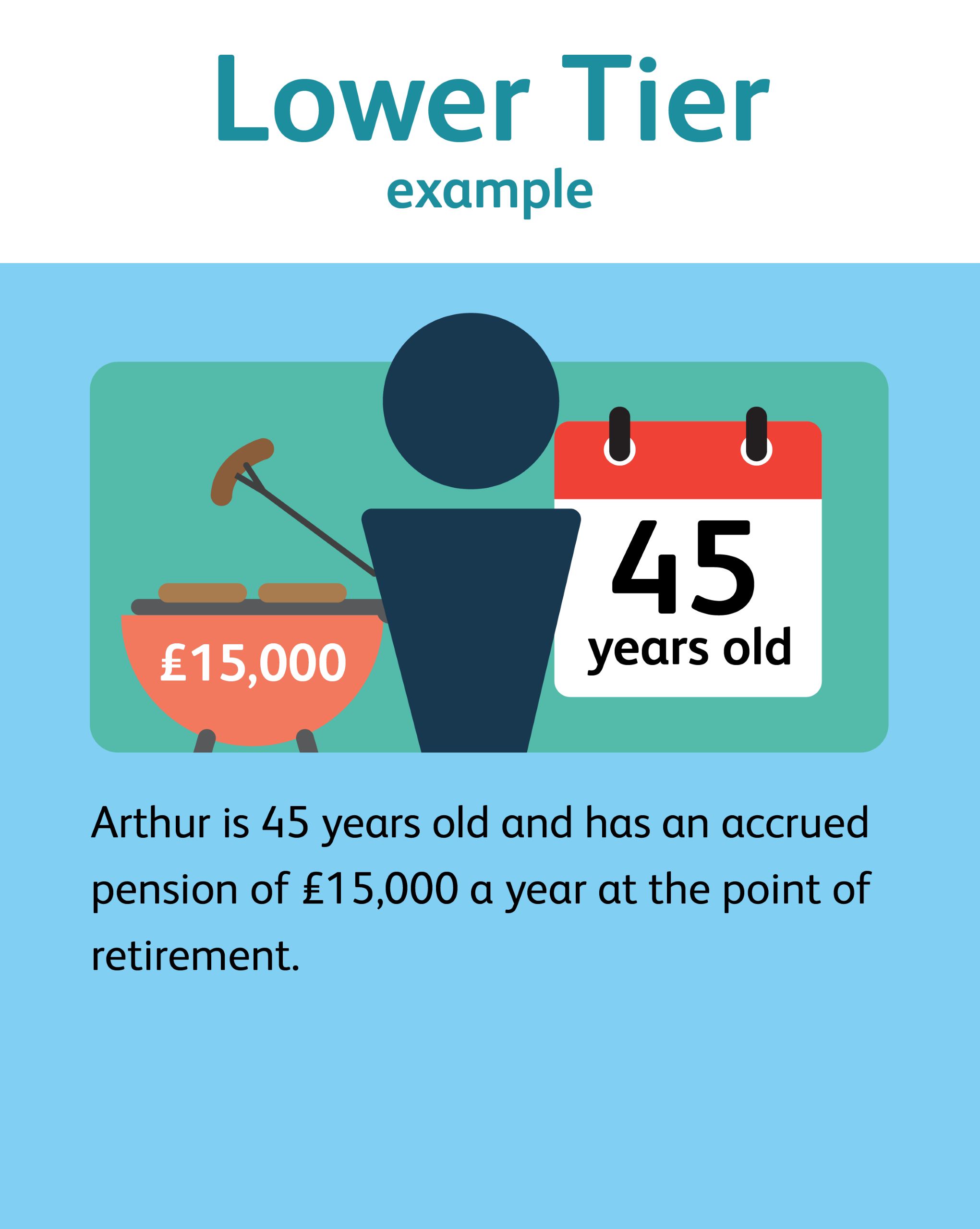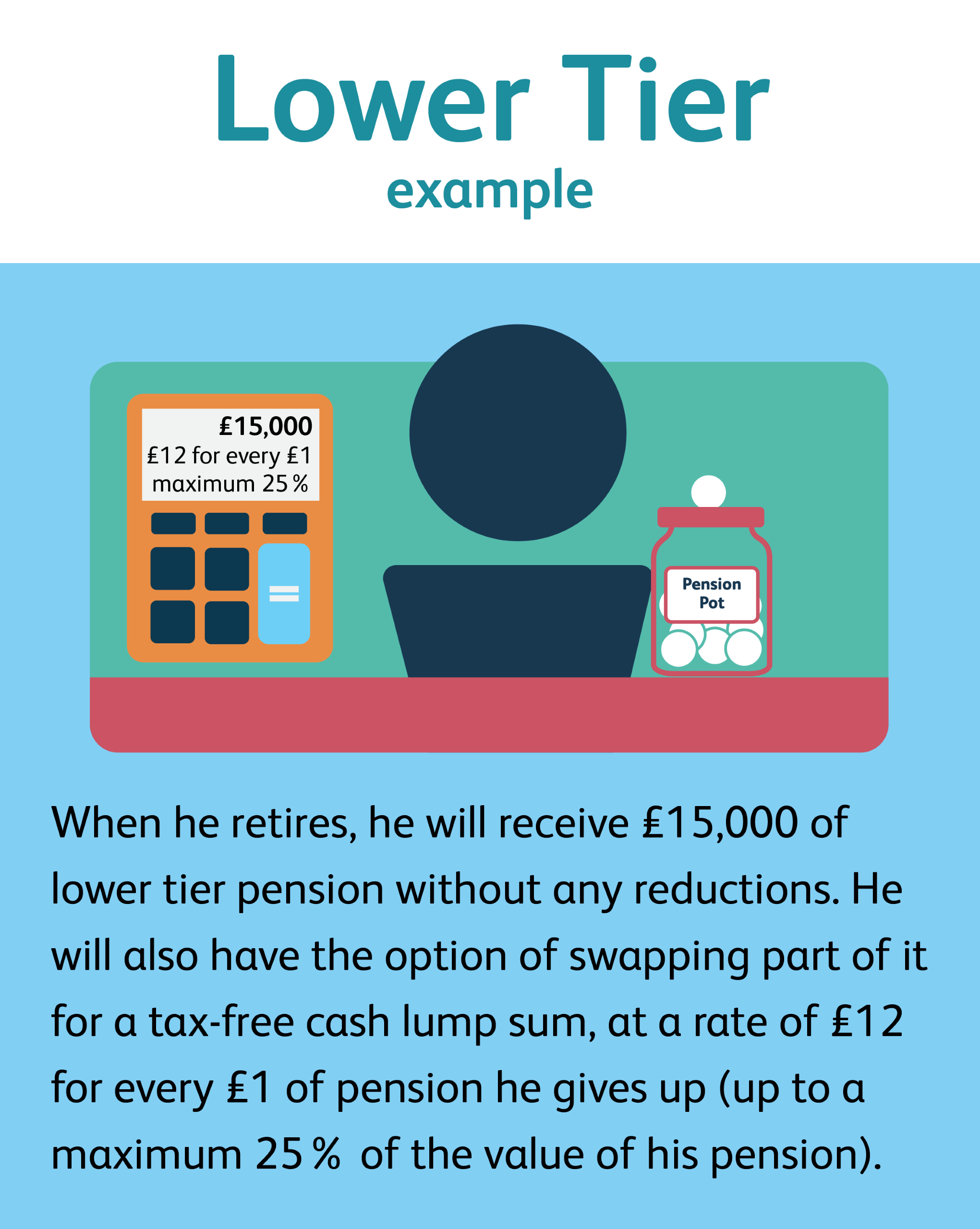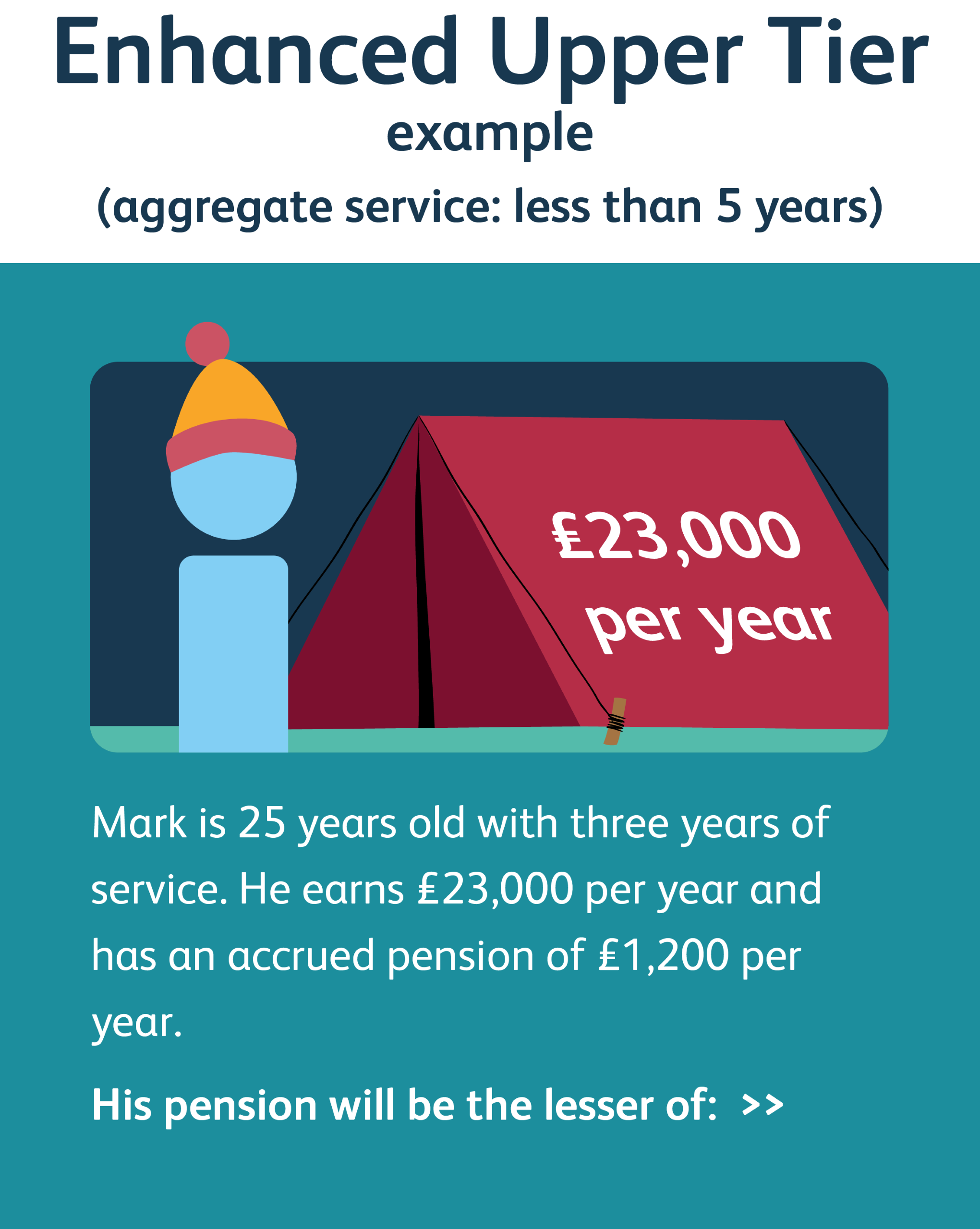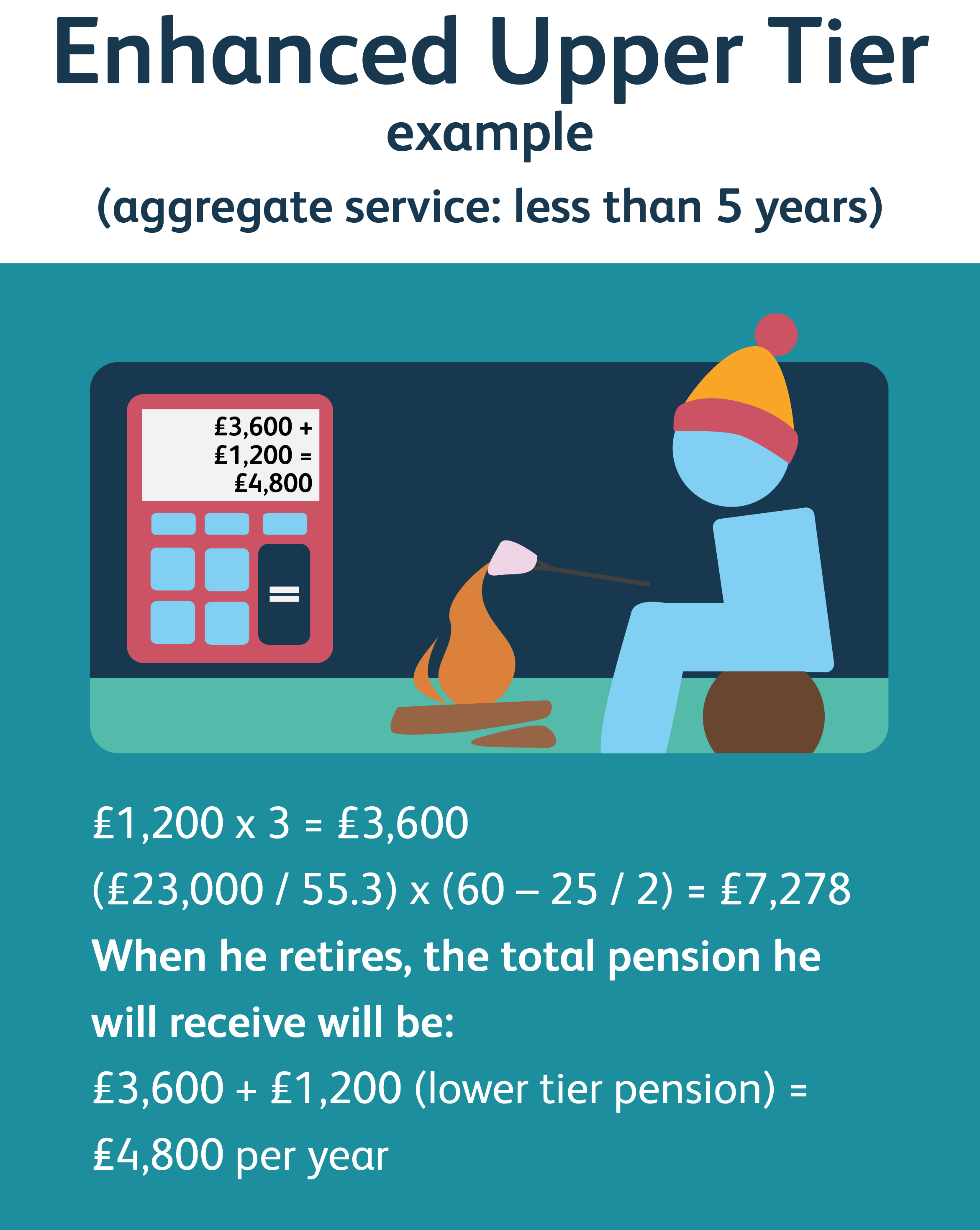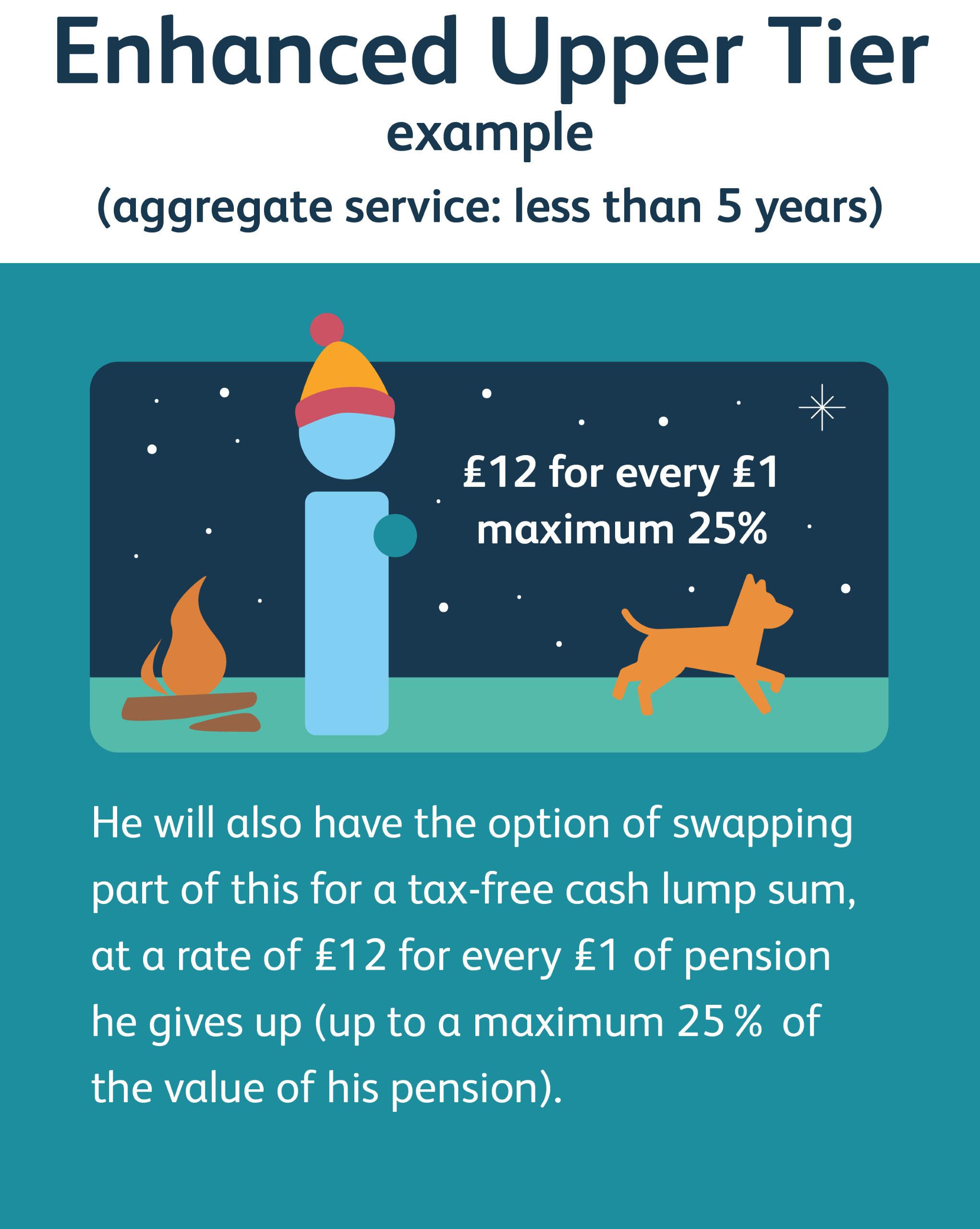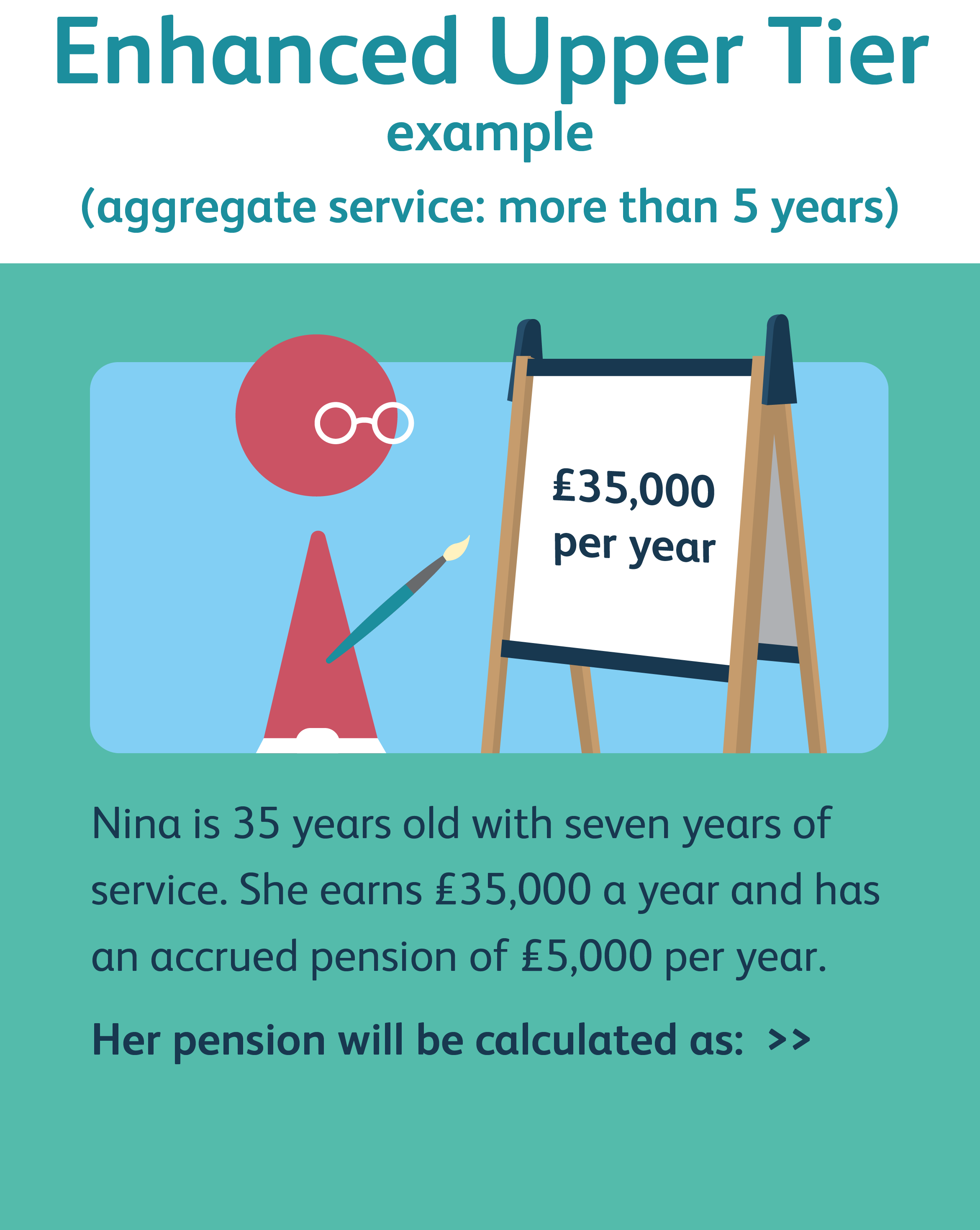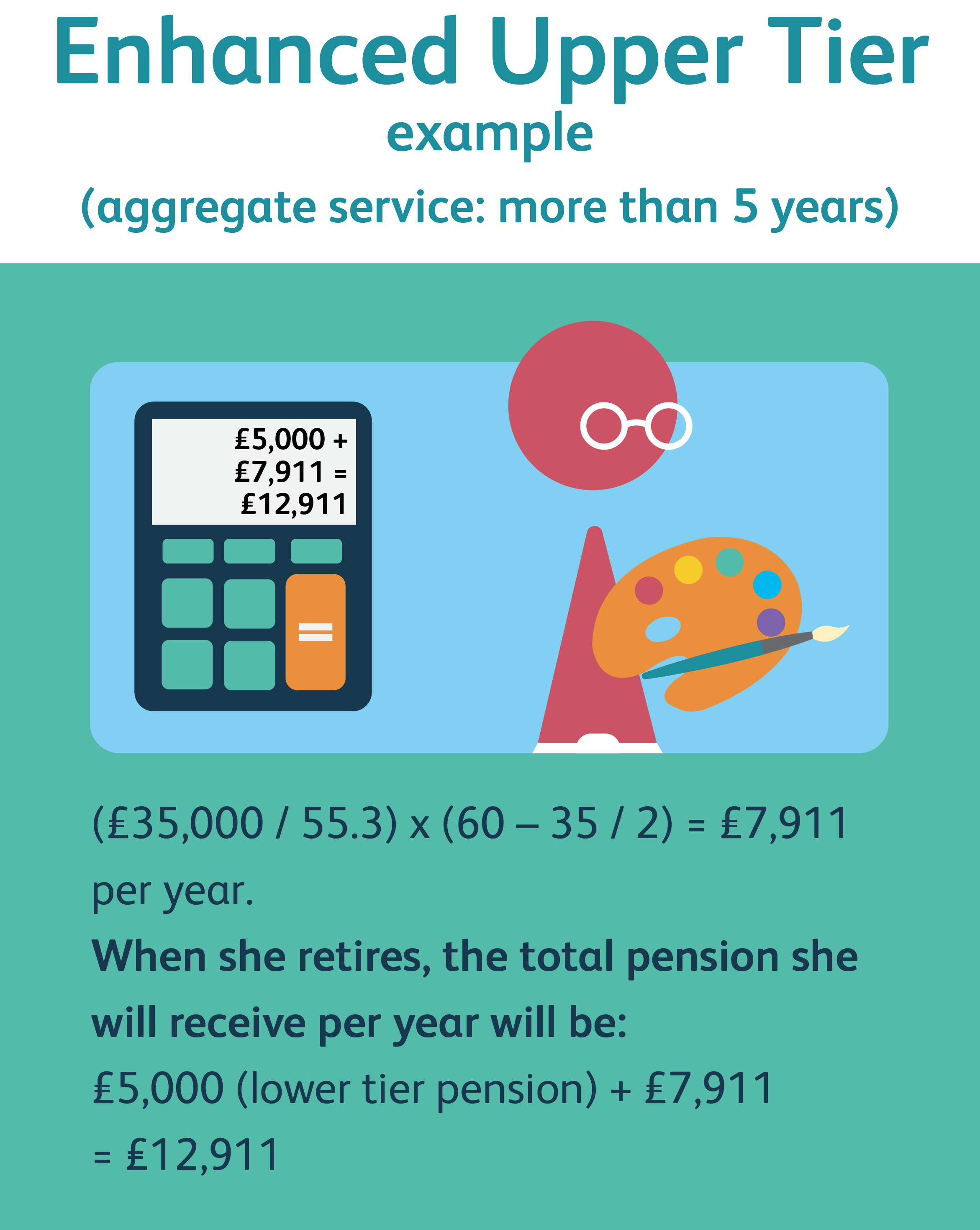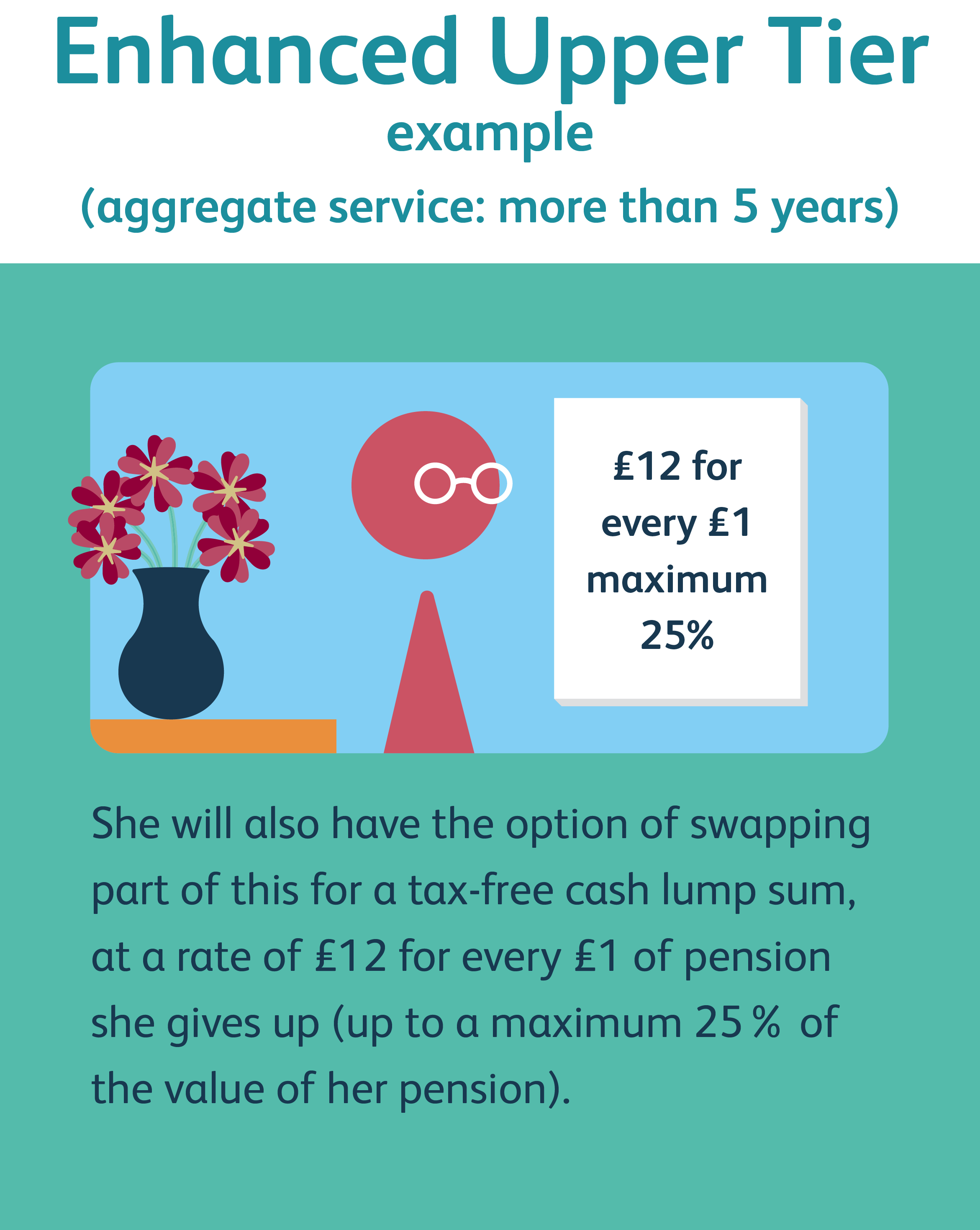Ill health retirement (Police)
If you’re unable to work due to ill health, you may be able to take your Police Pension Scheme (PPS) benefits early regardless of your age.
Contents
Do I qualify?
If you have not reached your Normal Pension Age (NPA) and are permanently unable to work because of ill health, you may qualify for ill health retirement.
Types of ill health pension
Ill health retirement benefits are divided into two tiers, lower and enhanced upper tier. The tier you receive depends on your ability to work before your Normal Pension Age.
Your employer decides which tier you qualify for, based on certain criteria. However, before making a decision, they must consult a Selected Medical Practitioner (SMP).
Click and hold the cards below to see the criteria.
*Regular employment is paid work for at least 30 hours a week for one year.
If your employer decides you don’t qualify for ill health retirement when you join the police force or re-join the 2015 scheme after opting out, you won’t be eligible for ill health retirement.
What will the medical practitioner do?
Because your employer is not a medical expert, they must get the opinion of a Selected Medical Practitioner (SMP) before they decide if you qualify for ill-health retirement.
Selected Medical Practitioner (SMP)
An SMP is an approved doctor or consultant who is qualified to give their medical opinion on your pension case.
The SMP will assess if you can:
The SMP will base their decision on your medical assessment (unless there are very exceptional circumstances).
But remember, even if you are assessed as permanently medically unfit to work, it doesn’t mean you will automatically qualify for ill health retirement.
Your employer will consider your medical condition and overall capabilities, to see if there are alternative roles you could do in the police force.
How is my pension calculated?
Working out your annual pension income depends on the tier you qualify for because they’re calculated differently.
You can swap part of your ill health pension for a tax-free cash lump (the lump sum cannot exceed 25% of the overall value of your pension). Just remember, your ill health pension is calculated after taking out your lump sum.
Lower tier
A lower tier ill-health pension is worked out in the same way as a normal retirement pension but without any reductions or enhancements. It is based on the amount of pension you have accrued up to the date of your ill health retirement.
You may also have other rights if you were a member of the 1987 or 2006 schemes. See section 12 of the Police scheme guide for more info.
Enhanced upper tier
An enhanced upper tier pension is worked out based on how long you have paid into the scheme (known as aggregate service) and is usually increased, to compensate for the years you could have worked until Normal Pension Age. If you qualify for an enhanced upper tier pension, you will also receive a lower tier pension.
What is aggregate service?
This is the total time you have paid into the Police Pension Scheme (measured in years). If you were a member of the 2006 scheme, your aggregate service is a combination of how long you paid into the 2006 and 2015 schemes.
Will my benefits be reviewed?
Following ill health retirement, your Police Authority may review your pension at any time until Normal Pension Age to check if you’re still entitled to it. As part of this, you may be medically re-assessed by an SMP.
Your medical condition may be reviewed to assess whether it has stopped or worsened.
If your condition improves within five years of your ill health retirement date
If the SMP decides you are medically fit to work, you may be given notice to re-join the police force within three months, at the same rank (not lower) than the position you had before you took ill health retirement.
If your condition worsens within five years after your ill health retirement date
If the SMP decides you are permanently medically unfit for regular employment, you may be entitled to an enhanced upper tier ill health pension.
This five-year limit will not apply if you have a progressive medical condition.
Your medical condition may be reviewed to assess whether it has stopped or improved.
If your medical condition improves within five years of your ill health retirement date
If the SMP decides you are medically fit to work, your enhanced upper tier pension must stop but you will still be entitled to a lower tier pension. However, your lower tier pension will stop if the SMP decides you are medically fit to work in the police force and you’re given notice to re-join the police force.
If your condition would have improved with treatment, but you failed to take it
You will be warned that by continuing to not take treatment (willfully or negligently), your ill heath pension may stop (because you could become medically fit to work).
For more details on reviews see section 6.5 of the Police scheme guide
Ill health retirement and deferred pensions
If you have a deferred Police pension and become permanently medically unfit for regular employment (paid work for at least 30 hours a week for one year), you can take out your deferred pension early due to ill health.
Your deferred pension will be paid to you starting from whichever is sooner:
- The date you asked your Police Pension Authority to refer the questions to the SMP.
- The date your Police Pension Authority referred the questions to the SMP on its own initiative.
Your pension will not be reduced for retiring early due to ill health.
Injury benefit
When you suffer an injury while on duty, you may be entitled to an injury benefit under the Police (Injury Benefit) Regulations if:
- You are permanently medically unfit for the ordinary duties of a police force member, and
- You’ve left your employment.
Please note
This benefit is separate from the 2015 Police Pension Scheme, so you don’t need to qualify for ill health retirement to receive it.
